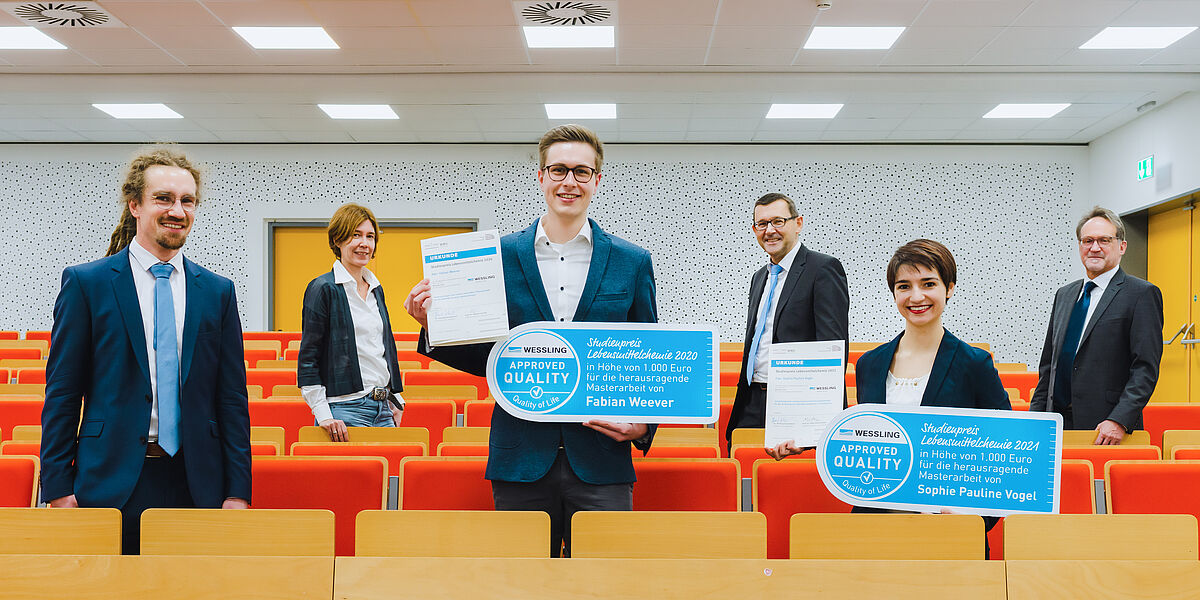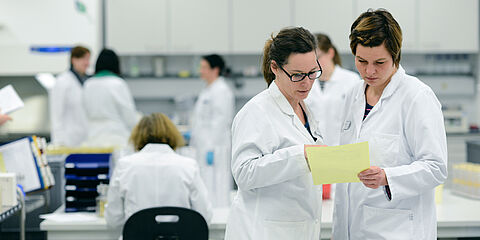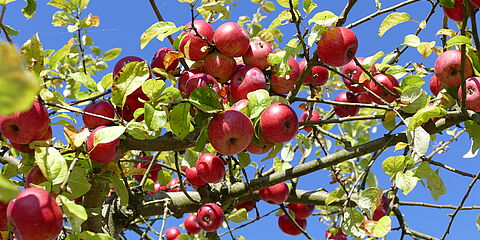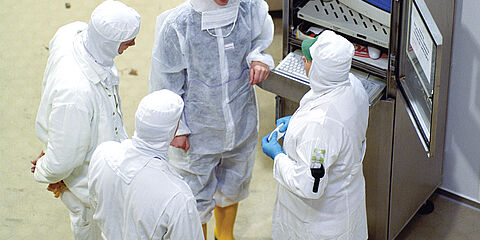Awards for best master’s theses in food chemistry
The study prize for the best master’s thesis in food chemistry at the Westfälische Wilhelms-Universität Münster (WWU), endowed with 1000 euro, was recently awarded at a ceremony. Dr Henning Kuchenbuch, Head of Analysis at WESSLING, presented the prize, which has been awarded by WESSLING for the past eight years, to Sophie Pauline Vogel, who developed miniaturised culture methods for the investigation of secondary metabolites in fungal cultures for her work. Since the Corona pandemic resulted in last year’s award ceremony being cancelled, another prize was awarded this year to Fabian Weever for his work on the effect of secondary plant compounds from the aronia berry on the activity of topoisomerases.

And that is what the excellent final theses are all about:
To find out more about the effect of secondary plant compounds from the aronia berry (Aronia melanocarpa (MICHX.) ELLIOTT) on the activity of topoisomerases, Fabian Weever took a closer look at its DNA. In a cell, the DNA takes the form of a strongly twisted double helix, since the cell nucleus is about a million times smaller than the length of the DNA strand it contains. For the DNA code to be read, this twisting must first be reversed by the enzyme class of topoisomerases. Topoisomerase inhibitors have been used as chemotherapeutic agents in cancer medicine for many years. With his investigations Fabian Weever optimised a method for the detection of DNA topoisomerase complexes. The method, which has been significantly simplified by further development, is available as a “Rapid Isolation of Topoisomerase Cleavage Complex Assay” and was published in the Journal of Agricultural and Food Chemistry.
Secondary metabolites of moulds are, on the one hand, of great importance in medicine, such as with the antibiotic penicillin. On the other hand, toxins produced by moulds can result in health problems via food and feed. The miniaturised method in combination with instrumental analysis techniques developed by Sophie Pauline Vogel enables a significantly more cost-effective and efficient investigation of even larger quantities of fungal cultures compared to classical methods. The method is also suitable for simulating fungal infestation of food or food contact materials and will be used as a routine method in the future.
Close collaboration between WESSLING and the WWU
By awarding the study prize, WESSLING supports the transfer of knowledge from theory to practice at various levels, for example by means of teaching opportunities, internships, and places for master’s theses. Close contact with universities, such as the WWU and universities of applied sciences, participation in research and development projects, and in DIN and technical committees provide the important impulses for this.
Your contact
We will be happy to support you.
- Dr. Henning Kuchenbuch
- + 49 2505 89-102
- henning.kuchenbuch@wessling.de



